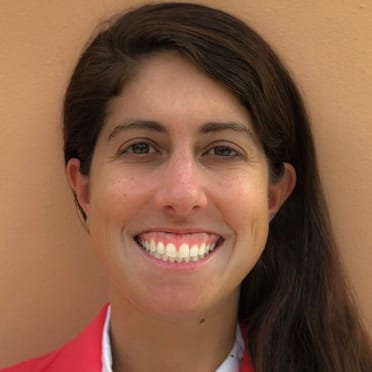Deep threat: Alcantara on historic pace, but Miami monitoring
MIAMI -- Marlins ace Sandy Alcantara is consistently going deep into games at a rate not seen in today's era of baseball.
Through 17 starts, Alcantara has thrown 123 1/3 innings -- the most during a stretch to open a season since Dallas Keuchel in 2015. Alcantara averages 7.25 innings per start, well above the MLB average (5.2).
Here's a comparison of 2015 Keuchel and '22 Alcantara:
2015 Keuchel
• Age-27 season
• 563 1/3 career innings
• Finished with 232 innings that season
• All-Star and AL Cy Young Award winner
2022 Alcantara
• Age-26 season (turns 27 on Sept. 7)
• 610 2/3 career innings
• On pace for 239 innings this season
That innings total would be the most since 2014, when David Price (248 1/3) and Johnny Cueto (243 2/3) topped it.
While those numbers are elite, they also pose a tricky dilemma for manager Don Mattingly, pitching coach Mel Stottlemyre Jr. and the rest of the organization.
"We do have to monitor them," said Stottlemyre, who predicted during Spring Training that Alcantara would throw at least 220 frames. "One thing I remember when I got into coaching, some advice my dad gave me -- and he had a great staff of [Andy] Pettitte, [Roger] Clemens, [David] Cone and [Mike] Mussina, guys that were going to log a lot of innings -- he said:
'Everybody's got a threshold. Your job is to be able to manage and put them in a position to win. Make sure when you start to see some flags and have some understanding of what goes on over the course of the season and high-leverage pitches and innings, that you don't meet that. So that you don't come back and down the road you go, That was too much and you lose that player or that player's effectiveness starts to go down. Then everybody asks a question, What happened, what's wrong?'
"It's tough," Stottlemyre Jr. continued, "and I will tell you one thing about Sandy: He is different. There's been one or two other guys that I think that I've had that have been wired like that, so he's rare."
Those two players would be workhorses Max Scherzer and Félix Hernández, whom Stottlemyre coached in Arizona and Seattle, respectively. A three-time Cy Young Award winner, Scherzer recorded six consecutive 200-plus-inning seasons from 2013-18, going 6.7 frames per start. With the Nationals, Scherzer led the National League in innings twice, winning the Cy Young Award in '16. From '08-15, Hernández topped 200 innings each season, with 6.9 frames per start. He paced the American League in innings during his lone Cy Young season in '10.
Stottlemyre remembers Dan Haren rattling off a similar stretch (2.01 ERA) as Alcantara's in 2009, then fading in the second half (4.62 ERA). But when a pitcher is hot, "you've got to let them roll."
Aside from age and workload, the Marlins also have to take into account how fast Alcantara throws. Setting a pitch minimum of 100, his changeup is tied for second (91.8 mph) and his slider tied for sixth (89.6 mph) in terms of velocity. His fastball ranks in the 96th percentile (97.8 mph).
"You have to understand that the intensity that goes in and the effort level that goes into his delivery, while it's kind of simple and looks easy at times, it's still a lot," Stottlemyre said. "We may not see -- and that's why we try to temper the effort level in between -- but there's a lot that comes out of that body, and he's worked hard to put himself in a position to create that. ... He doesn't back off. He doesn't have a back-and-forth curveball that doesn't have a lot of stress on his arm. That goes into it, too. I've seen him sometimes lower his arm slot or peel out with his delivery, about five or six starts ago, and I told Donnie, 'That's it.' For me, the flag has shown up out there and we've got to use some sense here."
During Alcantara's latest gem on Tuesday night, Mattingly wrestled with the decision of sending the right-hander to the mound for the ninth. At a manageable 107 pitches, Alcantara had permitted just two singles, walked no batters and struck out 10. The plan was to go with a hitter-by-hitter approach. But then the bottom half of the eighth got extended, and Mattingly didn't want Alcantara to go 20 minutes in between pitching.
"It's a hard one," Mattingly said. "Sandy's always hard because he's always kind of your best guy no matter where you're at. But we have internal discussions about Sandy, and [general manager Kim Ng] and I've talked about this guy's at that number almost every time now. You've got to think about winning in the long haul for not only his career, but really this year. You're going to need Sandy all year long, and if we go break him here, just pushing him every time he goes out there -- it's not pushing because he wants to be there -- I think that's where I have to make decisions that are based on keeping this guy healthy, what's best for him in the long run for his career, and then for the organization as well.
"It's kind of nerve-wracking because you know the questions you're going to get in that situation, but again, I think that's where for me, I have to stick to my base, player-first. I've got to take care of Sandy's career. I've got to help take care of the organization from that standpoint. I can't let this guy just keep pushing and pushing all the time. It's a tough call. If it goes bad in the ninth, you have to answer questions, but I think that's just what you're aware of as a manager."
